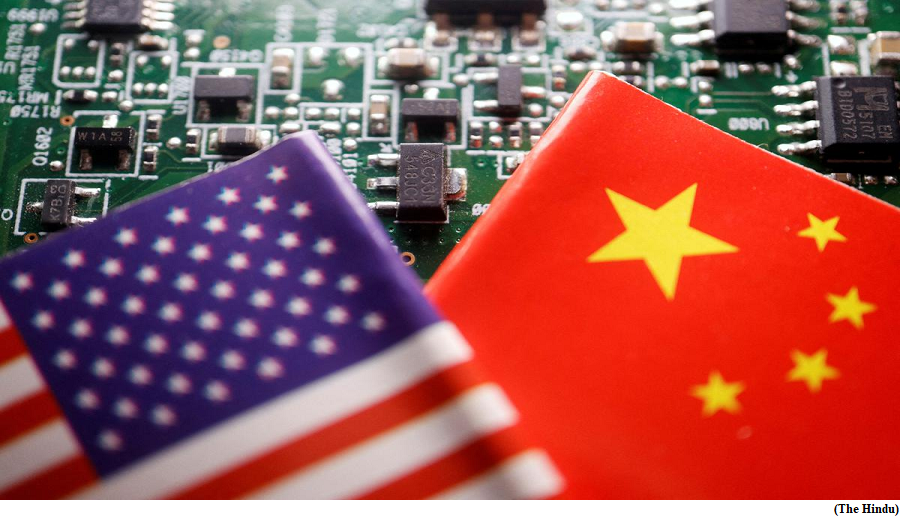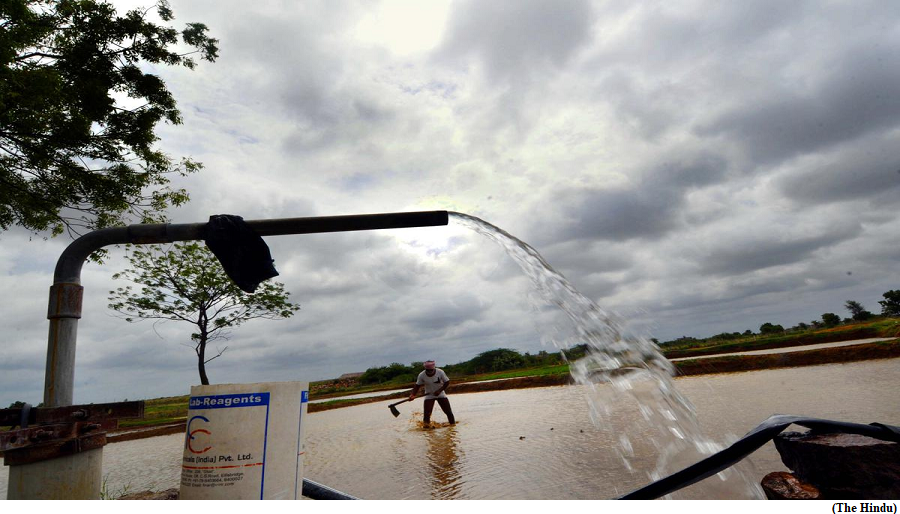China developmental security approach (GS Paper 3, Defence)

Context:
- In May 2023, the Cyberspace Administration of China announced that the U.S. chip giant Micron, which had been under investigation by the Cybersecurity Review Office, failed to obtain a security clearance, and that its products posed a threat to national security.
- Consequently, business operators tied to critical information infrastructure were advised not to procure Micron products.
- This is the latest incident in a series of crackdowns by the Chinese government against American consultancies and domestic firms dealing with overseas clients.
What are the other instances?
- Earlier, the Chinese authorities had raided the offices of Capvision, a Shanghai-based consultancy firm that connects lakhs of China-based experts with backgrounds in defence, military, finance, high tech, trade, energy, and medicine among others, to mostly overseas clients.
- Capvision was charged by Chinese security authorities with using economic inducements to steal state secrets and facilitating the transfer of sensitive information sourced from its experts, to its foreign clients. In the process, the company was found guilty of violating several laws relating to national security.
- In April 2023, the offices of American consultancy firm Bain and Co. were raided and its employees in China questioned. While no employee was detained, the authorities seized computers and phones from its offices.
Why is the Chinese government cracking down on such firms?
- In October 2022, the U.S. tightened export controls which would make it harder for China to obtain and manufacture advanced computing chips and supercomputers.
- Therefore, at the outset, the actions by Chinese authorities appear motivated by retribution against the U.S.-led efforts to constrain China’s tech advancement, as has been widely reported in the Western media.
- The crackdown on consultancy and due diligence firms is likely to have ripple effects across all overseas businesses operating in China.
- Businesses rely on consultancy firms to navigate the regulatory environment which may prove to be challenging, especially in a country like China where regulatory unpredictability and uncertainty have been a norm in the last few years.
Why has security come to the forefront in Chinese politics?
- China has justified each of the above-discussed actions using national security concerns. However rhetorical as it may sound, the reality is that threat to security has become a pervasive concern in all aspects of governance in China.
- Under President Xi Jinping, Chinese discourse on national security has repeatedly underlined that the idea of ‘development’ cannot be isolated from that of ‘security’.
- On numerous occasions, including at the 20th Party Congress last year and the Two Sessions (the
- China’s incessant attempt to securitise its development has meant that non-traditional security issues have acquired greater significance in its developmental narrative.
- And among all the non-traditional security issues, cybersecurity and data/information security seem to concern Chinese authorities the most. This is apparent in their recent attempts to strengthen cybersecurity and counter-espionage laws.
Counter-Espionage Law:
- The recently amended Counter-Espionage Law that will come into effect from July 1, 2023, aims to treat all “documents, data, materials, and items relating to national security and interests,” at par with state secrets, thus, broadening the scope of espionage.
- It also expands the definition of espionage to include cyberattacks against state organs or critical information infrastructure.
- The revised law also empowers authorities to seize data, electronic equipment, information on personal property, and even ban border crossing.
- The recent crackdowns are thus reflective of this approach to ‘developmental’ security. The existing view within the Chinese administration is that several foreign businesses operating in China are indulging in espionage.
What next?
- China now, finds itself in an odd spot where development and security are applying diametrically opposing forces, thereby creating a regulatory dilemma.
- While development requires “reform and opening up,” and creating a business-friendly environment as the Party says, the need to balance development with security warrants enforcing restrictive measures which impinge upon free economic activity.
- The victims of the recent crackdowns not only have the U.S.-China competition to blame but also China’s evolving national security discourse.
What it holds for India?
- However, from India’s perspective, one cannot help but notice the outright contradiction that China’s discourse presents when it comes to its relationship with India.
- While China insists on the need to hyphenate development with security, it calls on India to keep the border issue (security) at its proper place and not let it derail the overall relationship (economics and development) with China.
Human groundwater extraction has affected the earth rotation, study
(GS Paper 3, Environment)
Why in news?
- Groundwater extraction resulted in the earth’s axis tilting nearly 80 cm to the east, a new study has found.
- It also found that nearly 2,150 billion tonnes of groundwater has been pumped and drained into the oceans in 1993-2010, making it one of the important contributors to global sea-level rise.

Polar motion:
- The earth’s rotational pole is the point along which the planet rotates. This point, which lies on the axis of rotation of the planet, moves in a process called polar motion. In other words, the location of the earth’s pole varies relative to the earth’s crust.
- Scientists have been able to track this motion relative to astronomical phenomena such as the centres of bright galaxies or quasars.
- They have also known for a long time that the movement of water can affect the earth’s rotation. A study published in 2016, for example, showed how the movement of water around the world contributed to the wobble in the earth’s axis.
Highlights of the study:
- To bridge this gap, a group of scientists at the Seoul National University used a climate model that linked the shift in the earth’s axis with the movement of water through melting ice caps and glaciers.
- The scientists added the effects of water stored in reservoirs and dams but to no avail.
- The model only matched the observed drift of the axis once they added groundwater to the equation.
Findings:
- They said that the location of groundwater depletion is important because that affects how much the axis wanders. Using their model, they found that pumping groundwater from midlatitude areas would impact the drift the most.
- They also found that the most amount of groundwater redistribution took place in northwest India and western North America, both situated at mid-latitudes.
- The also found that enough groundwater was pumped from underground reservoirs or aquifers to cause the global sea level rise of 6.24 mm between 1993 and 2010.
Groundwater depletion in India:
- Groundwater depletion has been a particular concern across India since the last decade. About 95% of India’s groundwater depletion was traced to north India where groundwater is primarily used for irrigation.
- Punjab, Haryana, Delhi, and western Uttar Pradesh have critical groundwater levels due to the indiscriminate use of groundwater, while Rajasthan and Gujarat have low groundwater levels due to arid climate.
- Groundwater availability is also low in parts of Karnataka, Tamil Nadu, Telangana, and Andhra Pradesh due to the crystalline nature of the aquifers found here.



